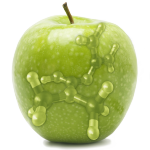 When we published Luc Tappy’s Q&A on fructose toxicity two years ago at the time of our first conference on Metabolism diet and disease, he took the line that fructose is harmless to people not at special risk of developing metabolic disease, but could reasonably and on the whole should be avoided by people who are at risk, since it is dispensible and may, for reasons connected with our metabolism and homeostatic circuitry, exacerbate any tendency to overeating and obesity.
When we published Luc Tappy’s Q&A on fructose toxicity two years ago at the time of our first conference on Metabolism diet and disease, he took the line that fructose is harmless to people not at special risk of developing metabolic disease, but could reasonably and on the whole should be avoided by people who are at risk, since it is dispensible and may, for reasons connected with our metabolism and homeostatic circuitry, exacerbate any tendency to overeating and obesity.
He didn’t say it was addictive and best avoided altogether, along with any other sweeteners – which is the conclusion that Lew Cantley now arrives at, in a short interview for BMC Biology to introduce some of the key topics of our second Metabolism, diet and disease conference at which he will speak in May this year.
Lew Cantley has made his mark on the regulation of metabolism and the cancer connection – the focus of this year’s conference – with his seminal work on phosphoinositide 3-kinase (PI3K), which he discovered in 1985 as the product of a viral oncogene and which subsequently turned out to be a crucial component of the insulin signalling pathway.
We spoke to him about that and his recent work on the metabolic specializations of cancer cells that everyone hopes may expose them to new anti-neoplastic interventions, if the extraordinary capacity of cells to adjust to metabolic pertburbations can be outflanked. (These systems, as Marc Kirschner has remarked recently in BMC Biology, are set up for robustness.)
The fructose issue arises because it now seems established that obesity is a major risk factor in cancer, and fructose has exclusive access to an express route to fat.
Not that this wasn’t known to Luc Tappy two years ago: both he and Lew Cantley explain the metabolic peculiarity of the liver whereby – to be brutally brief – glucose metabolism is responsive to physiological and metabolic feedback that ensures that brain and muscle are supplied with glucose and excess can be stored as glycogen; whereas fructose goes straight down a different pathway that leads directly to fat without input from any physiological or metabolic stop signals and without feeding brain or muscle on the way. The brain meanwhile registers the sweet taste, which should denote the arrival of glucose, but doesn’t in the case of fructose. The consequence, as Cantley puts it, is addiction to sweetness as the brain drives more and more sugar consumption in an effort to provide itself with glucose. The same thing, he argues, happens with artificial sweeteners. His uncompromising advice (I paraphrase) – Just say no.
The panel discussion at the Metabolism, diet and disease conference this year will be on the influence of diet on cancer and its prevention – what are the mechanisms and what we can do about it.
More interviews will follow, and can be found in our article series on Metabolism diet and disease, for which research submissions tackling these difficult questions are welcomed.
- The scientific Odyssey: Pre-registering the voyage - 3rd May 2017
- A year of almost anything you can think of in life science – an eclectic pick from BMC Biology - 13th January 2017
- Peer review: opting out - 23rd September 2016
One Comment